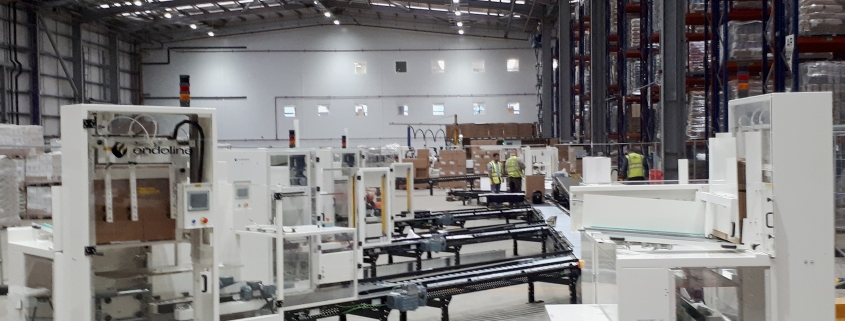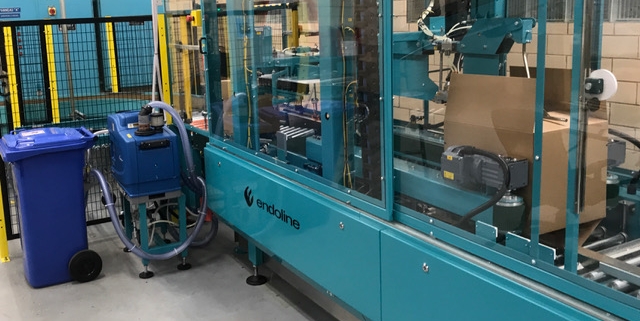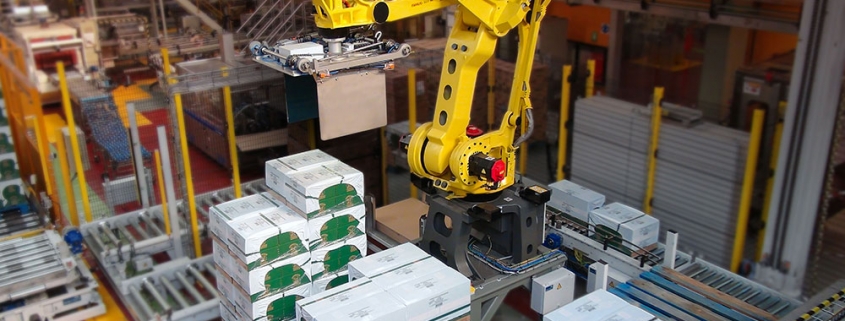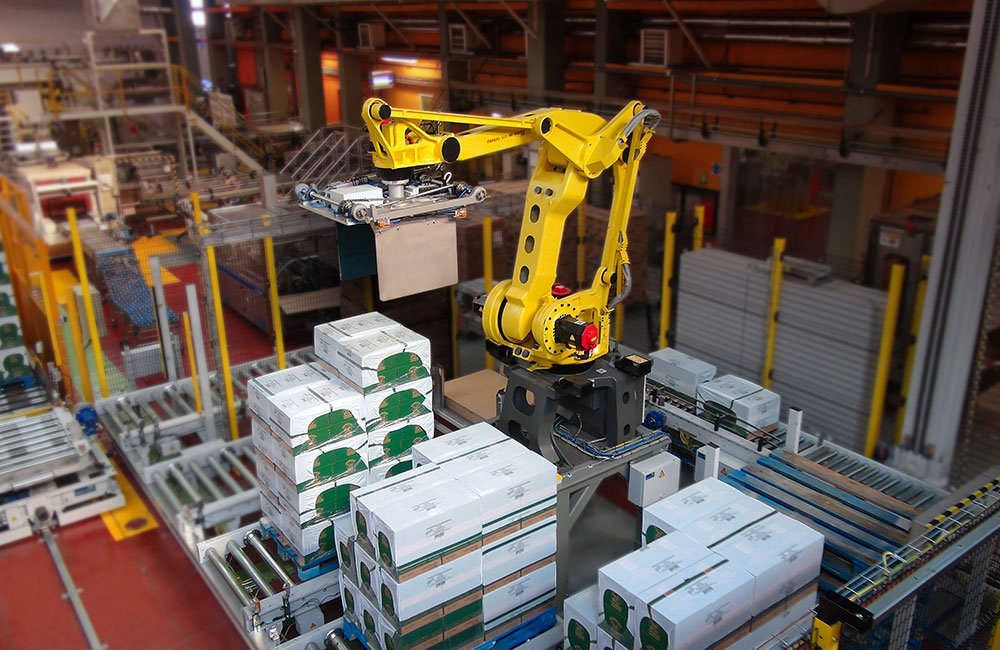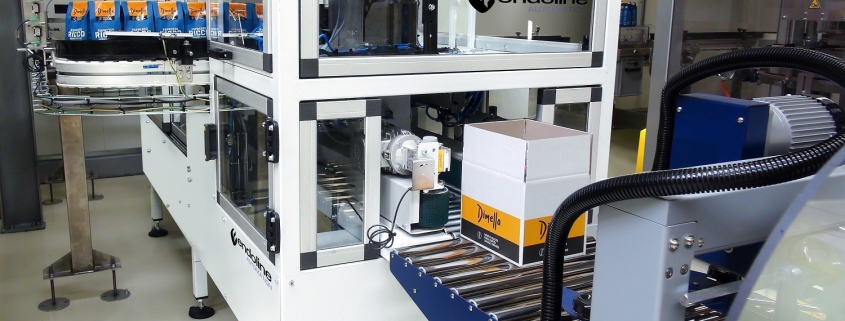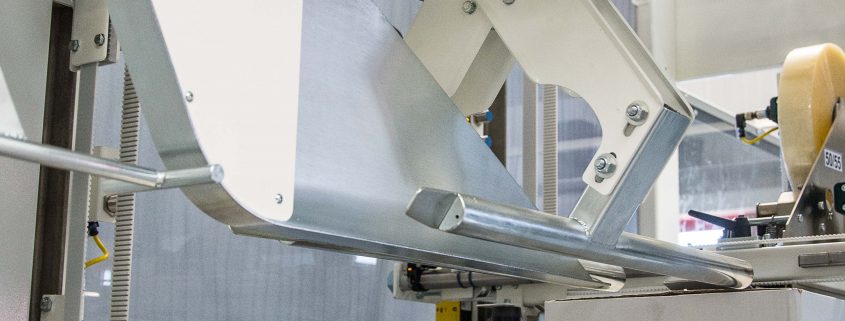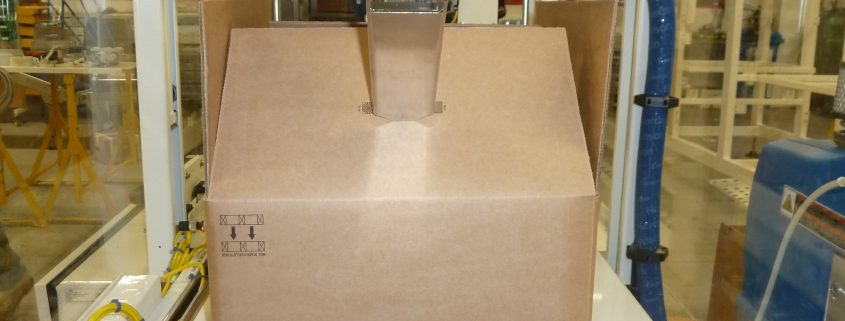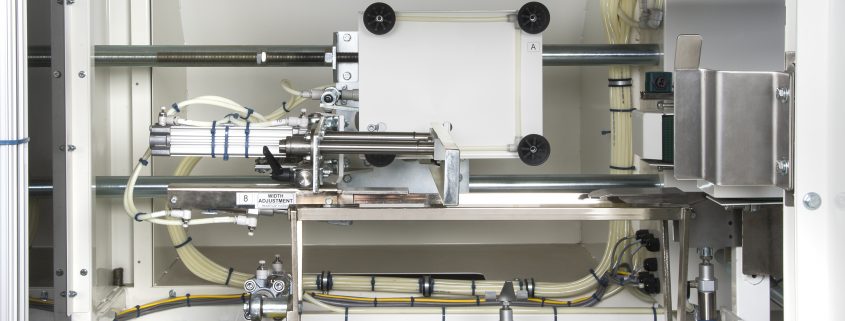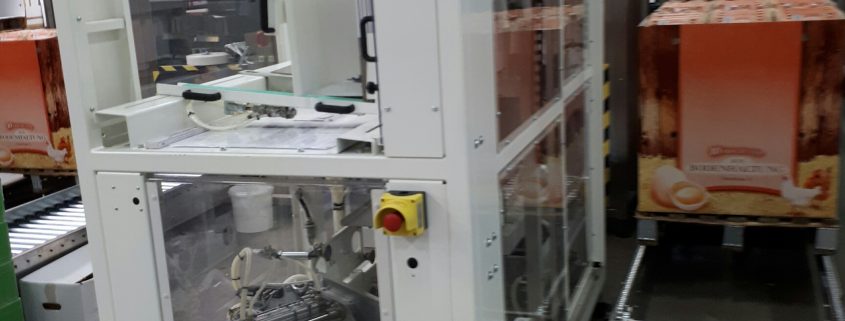As part of its first break into the US market, Endoline Automation has engineered a brand new, Industry 4.0 compatible, random case sealing system, which glues BOTH the top and bottom of cases for Canada’s second largest tobacco company.
Philip Morris International (PMI), manufacturer of six of the world’s top international cigarette brands, supplies the whole of Canada and North America from a single site in Toronto. With cigarette products being transported across both countries, protecting the security and integrity of its products is essential for the company, and they were looking for extra assurance of the case seal to eliminate the risk of tampering. As tape can be tampered with, glue was the preferred sealing choice due to the fact it can not be re-sealed once opened.
After two decades its original sealer was becoming less efficient, so PMI began searching for a sealing system which would not only glue both top AND bottom but would be capable of sealing over 20 random sized cases. Searches across the US and Canada were fruitless, so they turned to the UK, and Endoline Automation, through Canadian based Big Sky Engineering, a manufacturer and distributor of automated systems for the packing industry in the US and Canada.
With a reputation across the globe for creating customised, high specification end of line systems, Endoline took the brief, and delivered the new 407 Random Dual Gluing System within just 20 weeks. Critically, the machine was built to PMI’s exact mechanical, technical and even colour, specifications. The 407 includes servo drives for more accurate performance, a touch screen HMI for an easier user interface and remote access, so the machine can be monitored remotely to assist with support and fault diagnosis.
Re-engineering its existing 407 Fully Automatic Random Gluer, Endoline completely re-designed the lower gluing station to increase production speeds and ensure product integrity during the sealing process. “Bottom sealing cases with product already loaded inside always has its challenges, not least to ensure the product remains in the case while gluing the lower flaps of the case.” Explains Andrew Yates, Endoline Automation’s Sales Director. “To this end, we designed and integrated a product support device into the bottom gluing stage to support and prevent any product from escaping.”
In addition, to allow Philip Morris and all Endoline customers, greater access across all system parameters, Endoline took the opportunity to redesign its HMI interface, which was integrated into the new system. Featuring 50% less pages than previous screens, the new interface is Industry 4.0 compatible and cuts programming time by half. Through the SMART screen, which features easy to use, spanner shaped icons, PMI’s engineers can easily re-programme the machine to allow for new configurations of case sizes remotely via a computer, tablet or even a mobile.
Once the 407 was built, Endoline replicated the product using rapid prototyping techniques to simulate both mass and volumetric product characteristics. This allowed the product to mimic real-world scenarios, while ensuring Endoline maintained production requirements. A virtual Factory Acceptance Test (FAT) was then carried out from Endoline’s Bedfordshire factory, before the system was shipped to Big Sky Engineering.
An integral element of Endoline’s success is the fact the company employs its own engineers who are fully conversant across all Endoline systems. As with all installations across the world, an Endoline engineer was flown to Toronto to oversee the installation of the 407 which was integrated into a Big Sky Engineering’s in-feed and out-feed conveyor system and a glue inspection system to ensure that any non-sealed cases were diverted automatically to keep production flowing at all times.
The disassembling of the original line, followed by the installation of the new line, was completed over the course of a weekend to ensure downtime within the factory was kept to an absolute minimum. With the line fully up and running, manual workers form the cases and pack them to suit each retailer’s specification. A conveyor system identifies the size of the case via a bar code reader, and, once the 407 readjusts itself accordingly, the filled case runs through the sealer. The bottom of the case is held in place to be glued with a hot melt glue, before the process is replicated on the top of the case. Once the process is complete, the closed case is held under a compression plate allowing for sufficient pressure to be applied to ensure the seal is completely set.
The whole process takes just over 5 seconds, with 10-12 cases running through the system per minute.
As a result of the success of this order, Big Sky Engineering were named as the exclusive, North American and Canadian Representatives for Endoline Machinery. “This is a significant step forward for Endoline.” Andrew continues: “Our systems have become increasingly high spec over the years, with greater throughputs, and the ability to manage an unprecedented number of case sizes. As a British manufacturer with the ability to design and build cutting edge machines from one single manufacturing site, we have the engineering expertise to meet the exact end of line packaging needs of leading global brands.”

